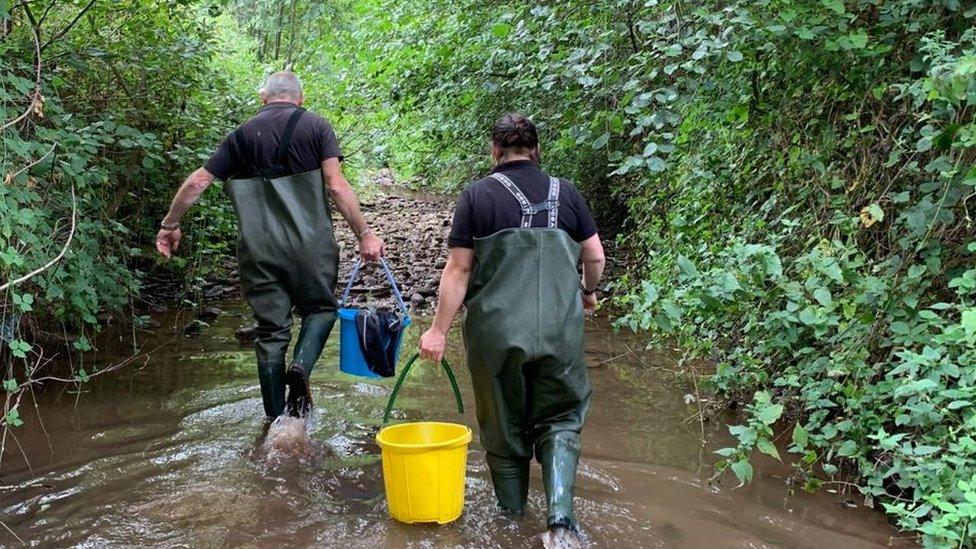Drought threatens Bibury Trout Farm's future
- Published
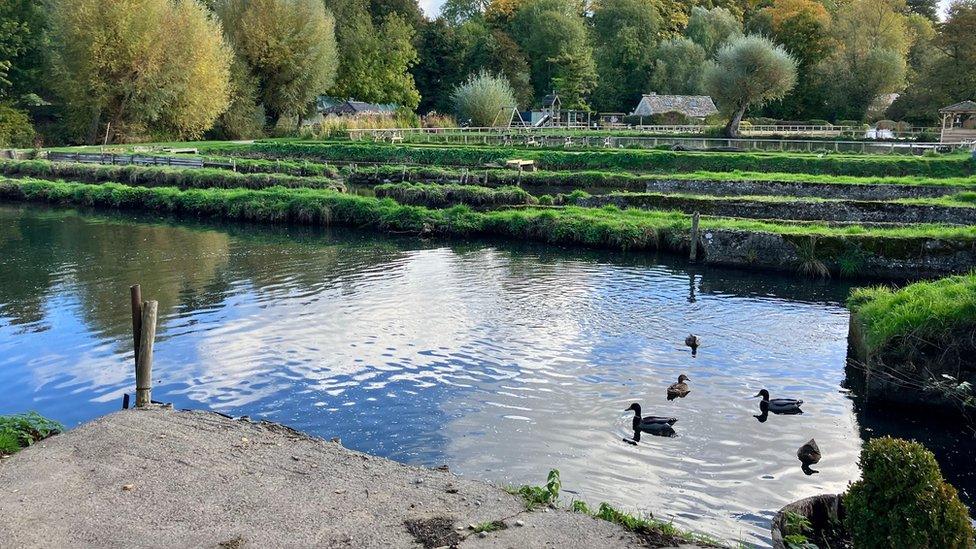
The farm has about 300,000 trout on its site
The oldest trout farm in England says drought is threatening its future after losing thousands of fish in the extreme heats of the summer.
Bibury Trout Farm in the Cotswolds said it had lost more than 25,000 fish after a lack of rainfall affected water levels on the River Coln.
At the peak of the hot weather the farm was losing 1,000 fish a day which owners said was "heart-breaking".
Farm worker Steve Woodland said the experience had been "soul destroying".
The Environment Agency has confirmed the September monthly flows on the River Coln, which supplies the farms, were the lowest seen since records began in 1962.
Despite some recent rainfall some parts of the UK remain in drought.
Ann Walker, manager of Bibury Trout Farm, said: "It has been a very tricky year for the farm as the water level has been very low and we have had to operate a lot of electric pumps which are obviously very costly, especially now."
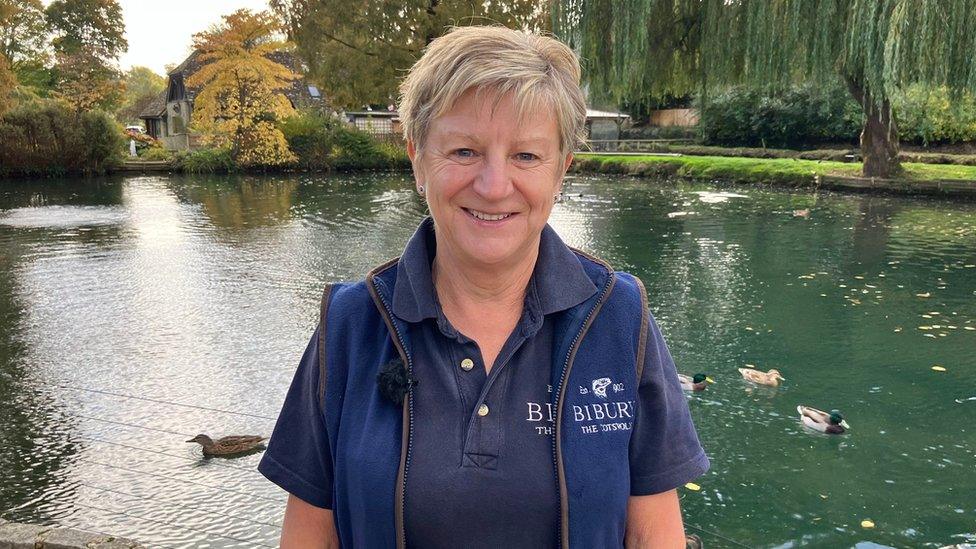
Ann Walker said the tourist trade has helped prop up the farm
The trout farm produces three types of trout, mostly rainbow, which they sell to fisheries, fish farms, angling clubs and private lakes, reservoirs and rivers across the country as well as supplying a number of pubs and restaurants in the Cotswolds.
It also runs a tourist business on site where people can catch their own trout and there is also crazy golf, gardens to walk through and a café.
At any one time the trout farm, which was set up in 1902, could have as many as 300,000 fish on site in its 40 trout ponds and hatchery.
Angus Hay, business developer at the farm said the tourist business kept the site afloat.
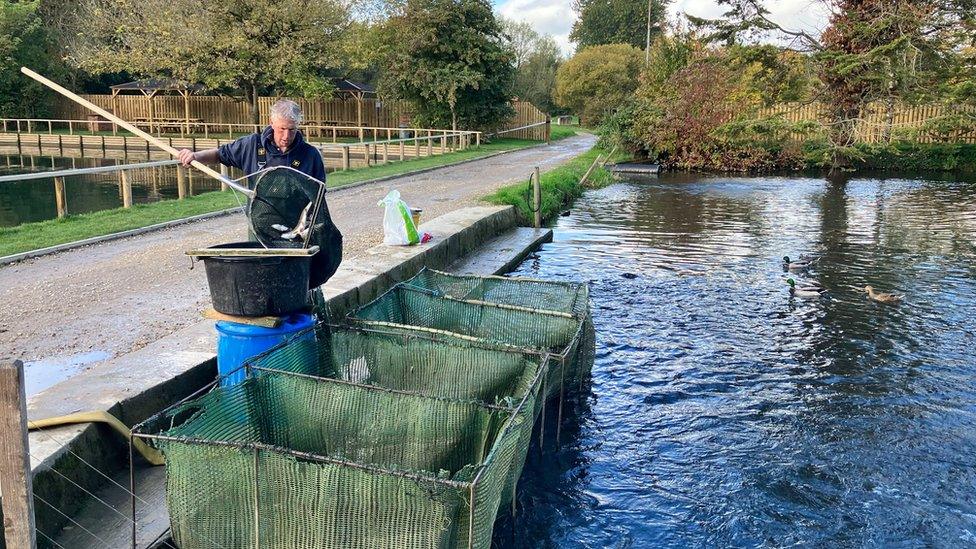
The fish are looked after for 24 hours a day
Ms Walker said the site had benefited from the influx of foreign tourists coming back to the farm after the pandemic.
But low water levels had meant water did not move across the trout ponds properly so the water has not been oxygenated which the fish need to survive.
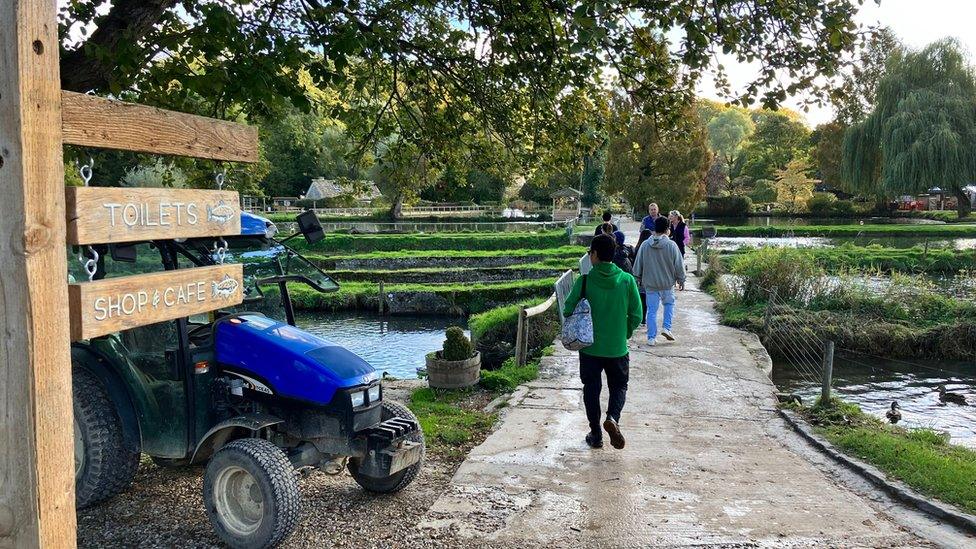
The farm has a "catch your own" section for visitors
Mr Hay said: "As well as the river, the farm also has two fresh water springs on site which feed the hatchery, one of those has completely dried up and the other is close. It's getting pretty dire.
"We've lost 10 to 20% of stock, we're lucky we have the tourist aspect. We need solid rain for a couple of months to refill."
"We have lost thousands of fish due to the extreme conditions, negatively effecting a business still trying to recover from Covid and threatening the future of the farm."
Steve Woodland, assistant fish production manager who has worked at the farm for 24 years, said the low water had led to many dead fish.
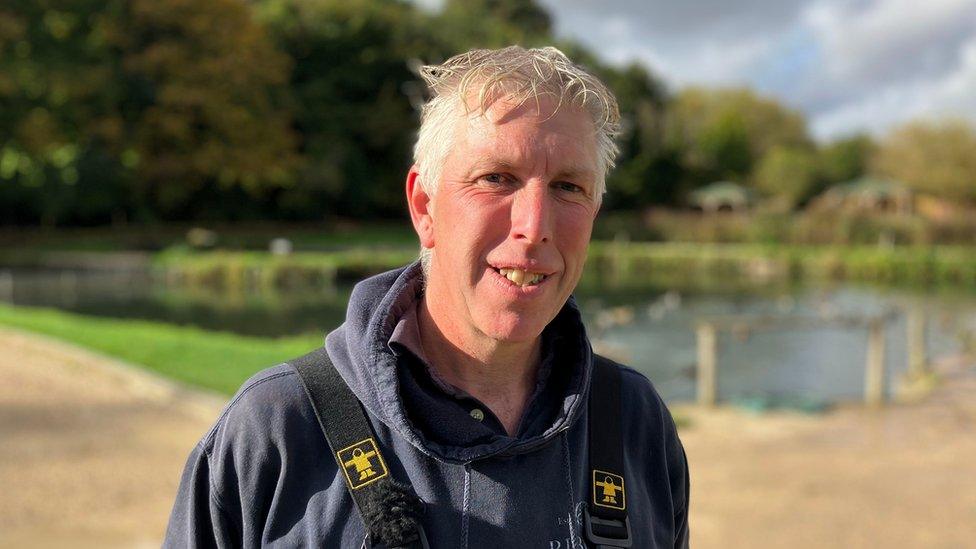
Steve Woodland has been working at the site for 24 years
He said it would have "huge implications" for the site going forward.
"I think long term we will have to look at the structure of the business, if this is going to be anything like the new normal then we need to perhaps look at how we do things, and perhaps produce less fish," he said.
Mr Woodland said staff were still "praying" for rain, adding that although there had been some recent wet weather it was "nowhere near enough".
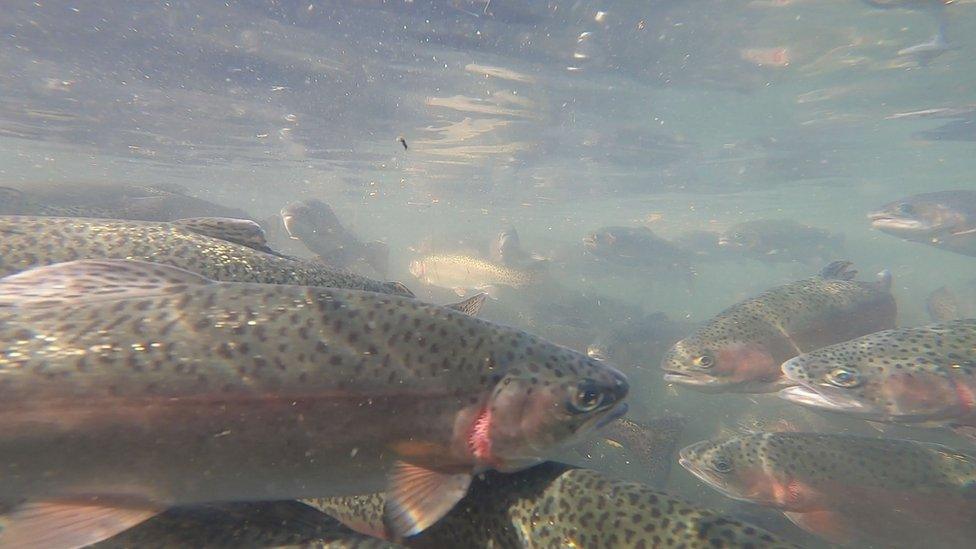
The trout need highly oxygenated water to survive
An Environment Agency spokesperson said despite recent rainfall parts of the UK were still in drought and would take "many months of regular rainfall to recover".
They said: "On the River Coln itself, September monthly flows were the lowest on record since records began in 1962.
"Our fishery teams have been linking closely with key partners and fishery owners, providing specialist advice, helping to monitor water levels and the impact of this on fisheries, and carrying out relocation of stranded fish where necessary."

Follow BBC West on Facebook, external, Twitter, external and Instagram, external. Send your story ideas to: bristol@bbc.co.uk
Related topics
- Published26 July 2022
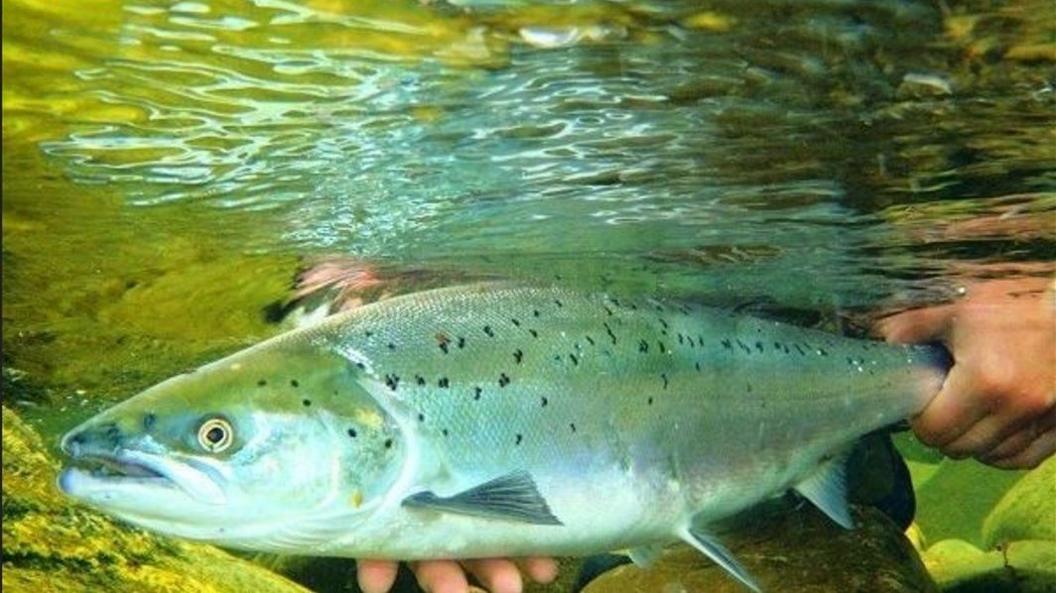
- Published12 August 2022
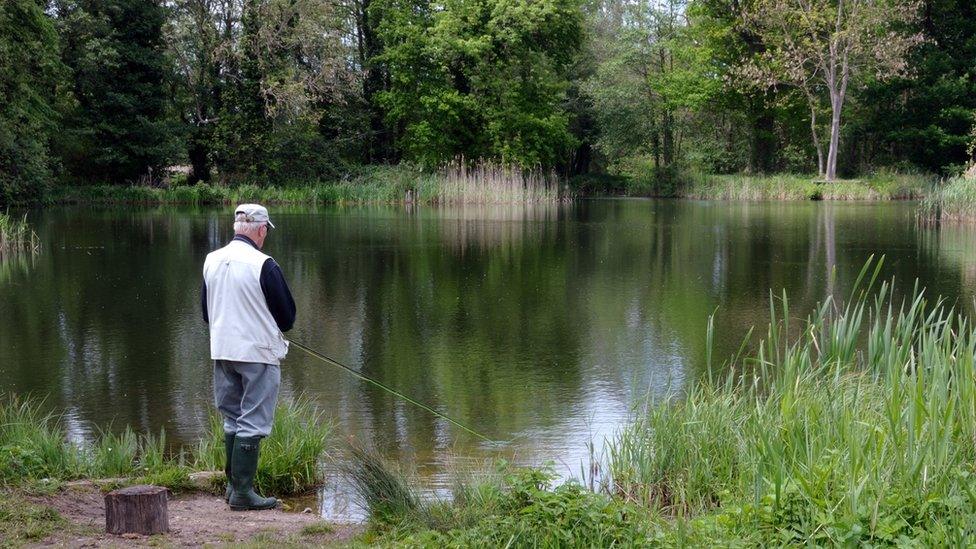
- Published31 August 2022
